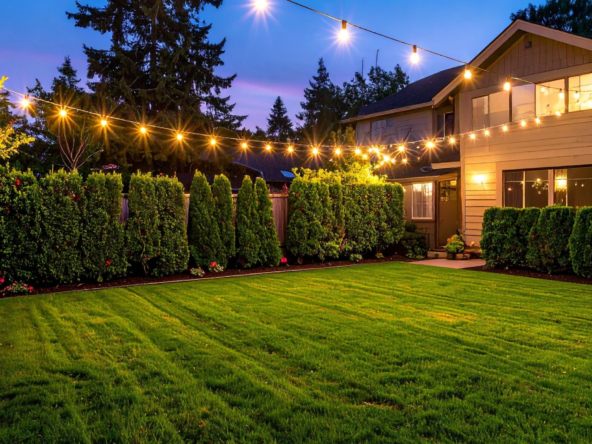TLDR
- After acceptance, your sale enters escrow with earnest money and firm timelines.
- Inspections, appraisal, and underwriting drive most renegotiations and delays for sellers.
- Local HOA timelines and Boise River proximity can affect closing speed and costs.
- Clear disclosures, pricing strategy, and proactive repairs keep net proceeds on track.
What does “under contract” really mean in Eagle, Idaho?
When a buyer and seller agree to terms, the property becomes “under contract,” and the clock starts on legal and financial milestones. In Eagle, earnest money is typically 1 to 3 percent of the purchase price and is deposited with a title company like Eagle Title within the agreed timeline, often within three business days. From there, the transaction moves through inspections, appraisal, loan underwriting, title work, and closing.
Recent MLS data for Eagle shows a market that rewards precision. The median list price sat near $1,049,000 mid-year, reflective of a premium market influenced by newer subdivisions and luxury river-adjacent communities. Properties often go pending in roughly five to nine weeks, and most negotiate to slightly below list, about 1 percent on average. For sellers, that means accurate pricing and steady communication matter from day one of escrow.
As the best Eagle Idaho realtor in many clients’ eyes, I focus on setting the right expectations around timelines, contingencies, and documentation. Done well, escrow in Eagle averages about 35 days from contract to closing. Done poorly, it can drag past 45 days and chip away at your net.
Here is how I define it as Chris Budka:
- “Under contract” means the buyer has timelines to satisfy inspections and financing.
- Your job is to disclose thoroughly, respond quickly, and approve agreed repairs.
- My job is to protect your timelines, negotiate issues, and manage risk to closing.
How does the post-acceptance timeline work in Ada County?
Think of escrow as seven steps. First, the buyer deposits earnest money. Second, due diligence begins, usually seven to ten business days, covering home, roof, sewer, and pest inspections. Third, the appraisal is ordered, often completed in eight to fourteen days. Fourth, the buyer’s lender completes underwriting, which commonly takes 30 to 45 days. Fifth, the title company completes a title search and issues a commitment. Sixth, the buyer conducts a final walk-through within 24 hours of closing. Seventh, you sign closing documents at the title office, the deed records, and funds disburse.
Two realities shape seller strategy in today’s Eagle market. One, affordability is tighter here than nearby cities, with a local affordability index near 82, so your buyer pool is more selective. Two, most sellers are equity rich after long tenures. NAR reports median seller tenure around 11 years and significant equity gains for recent sellers, which gives you room to make smart, calculated concessions when warranted without sacrificing your overall outcome.
Earnest money, appraisal, and title basics
- Earnest money: Held by the title company in escrow and applied at closing. If the buyer backs out for reasons not protected by the contract, you may be entitled to the deposit under the terms of the agreement. For forms and agency guidance, visit Idaho REALTORS.
- Appraisal: If the appraisal comes in low, we can renegotiate price, ask the buyer to cover the gap, or find a concessions blend. Many lenders need 8 to 14 days to finalize the report once ordered.
- Title and HOA: Title searches in Ada County typically complete in one to two weeks. HOA documents can take five to ten business days, so we order immediately. Visit the City of Eagle Building Department for permits and local code resources that can help clarify property history.
Which neighborhood factors can impact your escrow in Eagle?
Neighborhood characteristics shape appraisals, inspections, insurance, and HOA timelines. Within a few minutes of my office at 408 S Eagle Rd, Suite 205, you’ll find different patterns that can change how we negotiate after acceptance.
- The Preserve
– Details – A 417-home community with parks, ponds, and a pool. Proximity to Eagle Elementary and Eagle High is a common buyer draw. – Watchouts – Irrigation systems and pond-adjacent lots may prompt buyers to ask about drainage, grading, and mosquito abatement. HOA turnaround for resale docs varies, so we order day one. – Typical timeline – Inspection five to seven days, appraisal inside two weeks, total escrow about 35 to 40 days if the buyer’s financing is conventional.
- Two Rivers
– Details – Luxury homes near the Boise River. Appraisals rely on tight-lot and custom-home comps, and private amenities elevate expectations. – Watchouts – River proximity can trigger additional insurance questions. Buyers may ask for roof certification on older tile roofs, plus detailed HVAC and pool equipment records. – Entry-level path – Buyers often use jumbo financing and expect flawless presentation. Sellers who complete roof tune-ups and pool service in advance see fewer retrades.
- Eagle Hills
– Details – Golf course community with a wide range of home ages. Buyers love fairway views and mature trees. – Watchouts – Appraisers scrutinize condition differences more heavily here due to varied ages. Tree root and sprinkler issues can pop up on inspections. – Typical timeline – Similar to city averages, 35 to 40 days, with extra time for contractor bids if older systems need attention.
In every neighborhood, the same rules apply. Pre-list inspections and fast disclosure packets reduce the chance of last-minute credits. The goal is to keep the buyer confident and the lender comfortable.
What are the pros and cons of common seller decisions after acceptance?
Pros:
- Offering a one-year home warranty can reduce buyer anxiety and renegotiations, especially on older systems. See a general overview from NAR Research on buyer preferences.
- Approving small, high-impact repairs, like GFCI updates or roof flashing, can keep the deal on track and protect appraisal.
- Providing full permit records from the City of Eagle Building Department builds trust and shortens underwriting questions.
Cons:
- Large blanket credits without contractor bids can invite extra buyer requests and appraiser skepticism.
- Agreeing to a long list of non-health-and-safety repairs can inflate costs and delay contractors, risking an extended closing.
How do I manage inspections, appraisal, and financing for a smooth closing?
Inspections are the top driver of post-acceptance negotiations. Typical costs for buyers include $350 to $600 for a general home inspection, $150 to $250 for a sewer scope, and $125 to $175 for a radon test. Appraisals often run $650 to $900, paid by the buyer, yet the outcome directly impacts your price. Title and escrow fees vary by price and coverage, and are split per contract. For buyer financing questions that can expand your buyer pool, see the Idaho Housing & Finance Association.
One of my clients in Brookwood accepted an offer with a seven-day inspection period. The sewer scope revealed root intrusion. We brought in a licensed plumber within 48 hours and secured a firm bid. Instead of a large credit, we negotiated a targeted repair by a local contractor before closing, keeping the buyer committed and the appraisal clean.
Another client in Eagle Hills faced an appraisal shortfall of $12,000. We walked the appraiser’s comps, highlighted a recent same-block sale, and documented upgrades with receipts. The appraiser reconsidered one comp’s adjustment, narrowing the gap by $7,000. We then split the remaining difference with the buyer, and the sale closed on schedule.
Which documents, disclosures, and logistics matter most before closing?
Your disclosure package is the backbone of a low-drama escrow. Gather and provide:
- Permits, final inspection cards, and contractor receipts for roofs, HVAC, and remodels. Start at the City of Eagle Building Department.
- HOA CCRs, budget, minutes, and resale certificates if applicable. Order immediately after acceptance to avoid delays.
- Utility, irrigation, and flood information. Appraisers and lenders often ask for clarity on these in river-adjacent areas.
- Lead-based paint disclosure for homes built before 1978, per federal requirements.
- Agency and contract forms through your broker and the Idaho REALTORS standard library.
Coordinate move-out and possession. Most closings in Eagle record the same or next business day after signing. Communicate clearly about what conveys, leave manuals and keys neatly labeled, and plan for the final walk-through to confirm agreed repairs.
FAQs
1. What if my home does not appraise at the contract price? We have several routes. We can renegotiate the price, ask the buyer to bring cash for the gap, or structure a hybrid with modest price reduction plus credits. I also review comps with the appraiser and provide upgrade documentation. Most gaps close with a measured, evidence-based approach that preserves value and keeps underwriting on track.
2. Should I offer a home warranty to the buyer? A one-year home warranty typically costs $300 to $900 with a per-visit service fee. It is not insurance, but it can reduce first-year repair anxiety on systems like HVAC and appliances. In higher-priced Eagle properties, warranties can help contain inspection retrades. I advise based on your home’s age, condition, and the buyer’s financing profile.
3. How long does closing take in Eagle, Idaho? Most financed purchases close in about 35 to 45 days from acceptance. Conventional loans can be faster, while jumbo and VA loans sometimes need additional underwriting time. Title commitments generally arrive within one to two weeks, and inspections wrap in seven to ten business days. We manage each milestone to protect your net proceeds and timing.
4. Can I keep showing my home after accepting an offer? Yes, if your contract allows a backup position. I often recommend collecting backup offers in neighborhoods with strong demand like Two Rivers, which increases leverage if the first buyer falters. If we accept a backup, I clearly disclose status to all parties and follow Idaho agency rules documented by Idaho REALTORS.
5. What repairs are worth doing after the inspection? Focus on health and safety, water intrusion, roof issues, and electrical corrections. Small, high-impact fixes like replacing missing GFCIs or sealing roof penetrations often satisfy lenders and buyers. If a larger repair is needed, obtain a licensed contractor bid quickly so we can weigh a targeted fix versus a credit. Timely documentation protects closing.
6. How do earnest money disputes get resolved in Idaho? Earnest money is governed by the purchase and sale agreement. If a dispute arises, the title company holds funds until the parties sign a release or there is a legal determination. The cleanest path is to adhere to contingency timelines and document all extensions. Using state forms and guidance from Idaho REALTORS helps avoid ambiguity.
7. Do I need to be physically present at closing? Not necessarily. Many sellers sign with a mobile notary or perform a mail-away closing. If you are out of state, we plan ahead for notarization and overnight delivery. The title company coordinates recording once funds are received. You will hand over keys per the contract, usually at recording or as otherwise agreed in writing.
Conclusion
The bottom line After your offer is accepted, success comes from managing details and momentum. In Eagle’s higher-priced market, buyers are selective, appraisers are diligent, and HOAs can add time if documents are ordered late. As your advisor at Chris Budka Real Estate, I keep timelines tight, disclosures complete, and negotiations calm. With accurate pricing, smart concessions when warranted, and proactive documentation, most homes close in about 35 to 45 days, protecting both your calendar and your net proceeds. If you want a seamless path from offer to closing, I am ready to guide every step.










